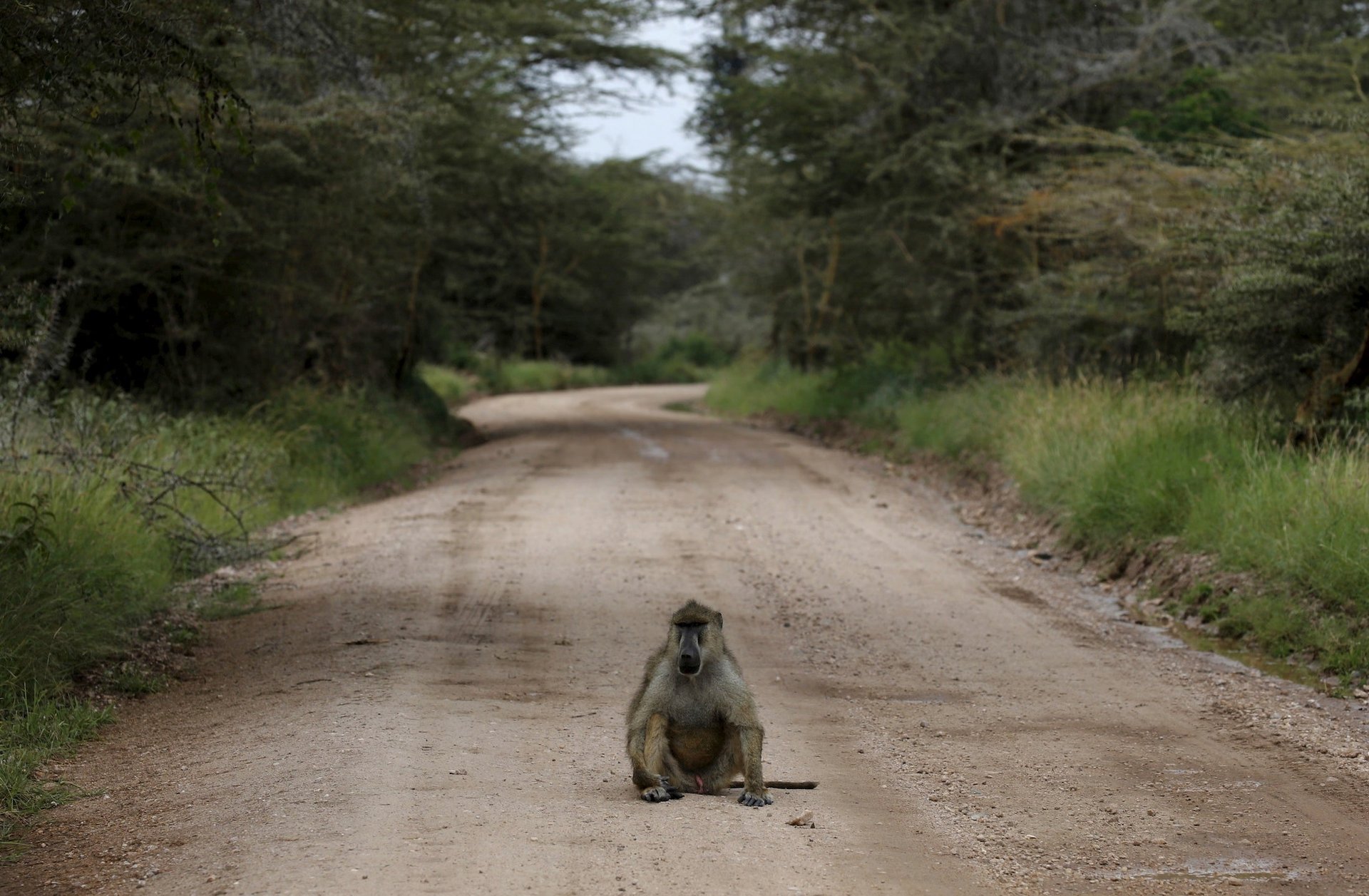It wasn’t just a monkey that brought down Kenya’s entire electricity grid
East Africa’s largest economy was brought to a standstill for more than fours hours by a monkey. On Tuesday (May 7th), Kenya’s largest power producer said that a vervet monkey had fallen and tripped a transformer, causing a national blackout for more than four hours.


East Africa’s largest economy was brought to a standstill for more than fours hours by a monkey. On Tuesday (May 7th), Kenya’s largest power producer said that a vervet monkey had fallen and tripped a transformer, causing a national blackout for more than four hours.
The blackout could also be blamed on the country’s aging electricity grid and the near total control over the sector by one company, Kenya Power, the country’s sole electricity distributor. Kenya Power purchases its power from Kenya Electricity Generating Company, better known as KenGen. For Kenyans, the monkey incident is another sign of how one of Africa’s most diversified economies is constrained by a lack of access to reliable power, a problem across the continent.
Businesses have to rely on expensive diesel generators. Foreign investors are often wary of Kenya because of the frequent power shortages, caused by anything from the rain or a stray animal. Blackouts are such a disruption that lawmakers are considering a bill requiring Kenya Power to compensate customers if a shortage lasts for more than three hours. During a parliamentary debate in April on the bill the power went out.
In some ways, the power sector is a microcosm of some of Kenya’s biggest problems: corruption, poor infrastructure, and inequality. Only 5% of rural Kenyans have access to power compared to 50% of urbanites. Last year, a Kenyan official and senior technician at Kenya Power were arrested for taking bribes. Critics blame the poor state of the power grid on the company’s monopoly. Illegal power lines and theft from the grid are common as well.
The government aims to double the percentage of Kenyans with access to power to 40% by 2030, but most analysts say that’s a farfetched goal. Wind power plants in the Turkana region as well as a new coal plant on the coast will require over 400km of new transmission lines to reach Nairobi, responsible for more than half of the country’s total electricity consumption.
KenGen says is is checking its plants to make sure they are secured against stray wild animals, according to its statement. The monkey is alive and in the custody of the Kenya Wildlife Service.